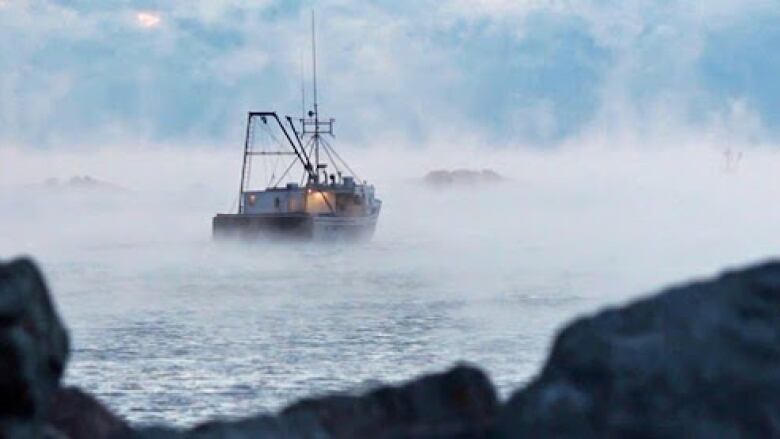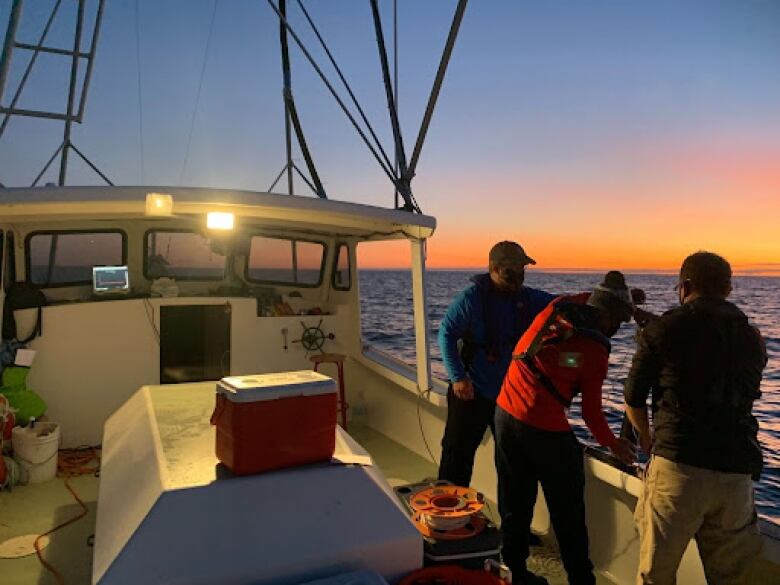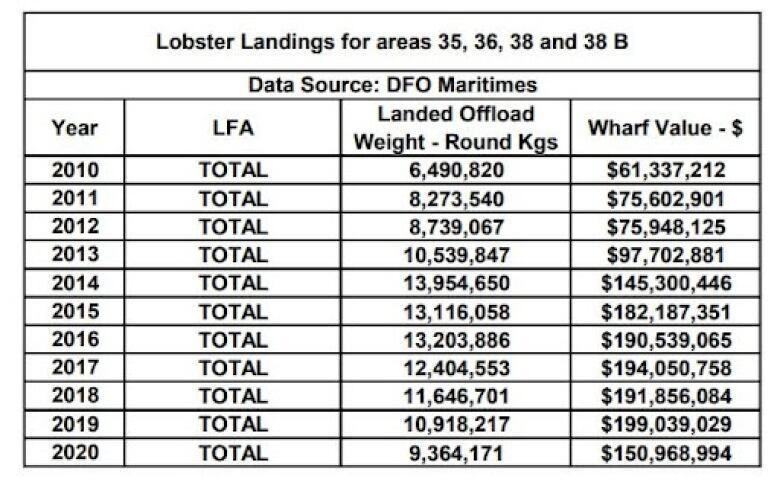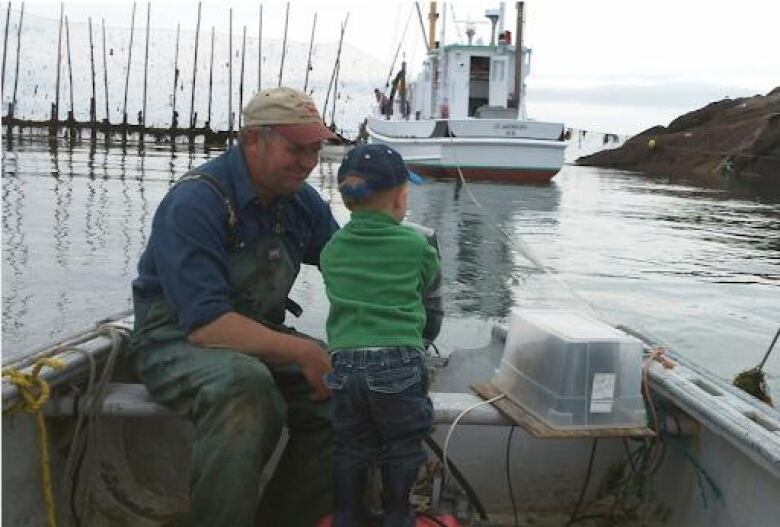Ocean warming is changing N.B.'s fishing grounds. Will fishermen adapt?
Survey probes resilience of 100 harvesters

Fishing communities in southwestern New Brunswick are trying to figure out how to use a decade of alarming reportsfrom scientists to get ready for the future.
While change in the oceans is constant, bells went off in August 2012,when the Gulf of Maine reported its warmestsea surface temperatures on record.
By 2018, the gulf was in a year-round heatwave, with temperatures higher than normal in almost every month.
Three weeks ago, scientists published data from the warmest autumn since 1982.
Between Sept.1 and Nov. 30, the average sea surface temperature was 15.5 C.

"That's three degrees Celsius or so above normal," said Dave Reidmiller, climate centre director at the Gulf of Maine Research Institute. "That's not insignificant."
"You can think about the ocean broadly like a human body. We have a pretty stable temperature at which we operate well. When you get a fever of a couple of degrees, you start to feel achy. When it gets up into three, four, or five degrees, systems start to shut down."
Reidmiller saidthe gulf has been warming faster than 99 per cent of the oceans in the world, partly because it's relatively shallow and it's being affected by changing ocean currents.
"The Gulf Stream, historically, was like a jet set on a really tight powerful stream of heat and hot water coming up from the tropics. More recently, it has slowed down and become more diffuse, which has allowed some of that warm water to come over Georges Bank and in the gulf," said Reidmiller.

The Bay of Fundy is also being impacted. It extends north of the Gulf and shares a marine ecosystem.
Data collected monthly from a monitoring station offshore from Saint Andrews shows temperatures that are one to two degrees above normal, said David Hebert, a scientist with Fisheries and Oceans Canada.
That's a departure, he said, from the gradual warming of about a tenth of a degree every 10years over the past century.
"It's a bit scary," he said. "I think it's going faster."
The 'sweet spot' for lobster is changing
What's living in the water is also changing.
Scientists say the warming contributed to a lobster bonanza, but further warming means it may not last.

"In the Gulf of Maine, as we've warmed, it really shifted temperatures into an ideal range for lobsters over the past decade," said Kathy Mills, research scientist at the Gulf marine institute.
"We are, though, now, getting to the point where we're concerned that as we continue to increase temperatures, we're moving out of that ideal range."
Mills said that while lobster flourished, groundfish species such as cod and flounderdeclined.
"We're already at the warmest extent of their tolerance and as our waters have continued to warm even more, it has affected the productivity of their populations," she said.

Meanwhile, new species have started showing up.
That includes longfin squid, normally found south of Cape Cod.
"Change is not going to happen wholesale overnight," said Mills.
"But the more forward-looking people are thinking about what might be coming and how to buffer some of the impacts and create opportunities."
Community groups working together
In New Brunswick, three community groups are working together to try to promote adaptation strategies.

The survey was designed to capture information about the value of fishing to the local culture and economy while also asking fishermen whether they're willing and able to change what they fish.
Among some of the answers that stood out:
- Fifty-eight per cent said their entire household income comes from their fishing but only 22 per cent said they had enough financial security to cope with future losses.
- More than half said they're aware that the availability of species may be changing but only a quarter said they'd be willing to learn new skills within the fishing industry.

"Everybody can agree that change is happening," said Briana Cowie, executive director of Eastern Charlotte Waterways. "So this is the time for some robust future planning."
"If we're going to see more species in our area," Cowie said, "to what extent is it something that people will want to eat? To what extent is that helpful for pharmaceutical companies? Just because something's emergent, doesn't mean it's marketable."
She said she would like to see research in those areas pursued.
The next step in the project is to interview fishermen.
Lillian Mitchell, executive director of Fundy North Fishermen's Association, said there's plenty of local wisdom to tap.
"A lot of the fishery has shifted to be very dependent on lobster but that wasn't always the model here," said Mitchell.
She said fishermen historically have relied on a greater diversity of catches, including scallop in the winter, herring in the summer, and river fisheries in the spring.
"You couldn't live off lobster fishing until recently. It used to be that you'd fish all kinds of things throughout the year," she said.
"The idea that you harvest what's available when it's plentiful, I don't think that concept is unfamiliar. They've already been through this."












_(720p).jpg)


 OFFICIAL HD MUSIC VIDEO.jpg)
.jpg)



























































































